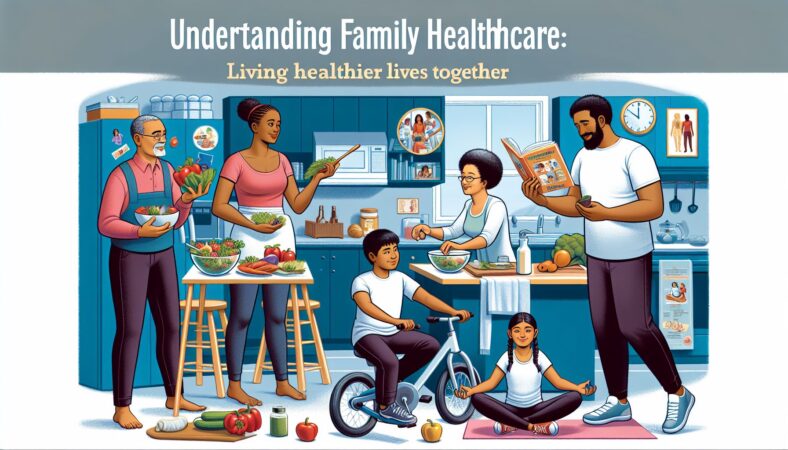As a family, your health and well-being should be a top priority. By taking proactive steps to live a healthier lifestyle, you can prevent various illnesses and promote overall wellness for everyone in your household. In this blog post, we will discuss the importance of family healthcare and how you can work together as a unit to make positive changes for a healthier future.
Introduction to Family Healthcare
Family healthcare encompasses the care and well-being of every member of your family, from the youngest to the oldest. It involves preventative measures, regular check-ups, and timely treatment of any health issues that may arise. By focusing on family healthcare, you can create a supportive environment where everyone feels empowered to take charge of their health.
One important aspect of family healthcare is cancer prevention. Cancer is a leading cause of death worldwide, and many types of cancer can be prevented through lifestyle changes and early detection. By educating yourself and your family about cancer prevention strategies, you can reduce your risk of developing this devastating disease.
Tips for a Healthier Family
-
Eat a Balanced Diet: A healthy diet is the foundation of good health. Encourage your family to eat a variety of fruits, vegetables, whole grains, and lean proteins. Limit the intake of processed foods, sugary drinks, and unhealthy fats.
-
Stay Active: Regular physical activity is essential for maintaining a healthy weight and reducing the risk of chronic diseases. Find activities that the whole family enjoys, such as hiking, biking, or playing sports together.
-
Get Regular Check-ups: Schedule annual check-ups with your family doctor to monitor your health and catch any potential issues early. Make sure everyone is up to date on vaccinations and screenings.
-
Practice Good Hygiene: Teach your family the importance of proper handwashing, dental care, and personal hygiene habits to prevent the spread of illness and maintain overall health.
-
Limit Screen Time: Excessive screen time can contribute to a sedentary lifestyle and poor health. Set limits on screen time for both children and adults and encourage more active forms of entertainment.
-
Manage Stress: Stress can have a negative impact on both physical and mental health. Encourage your family to practice stress-reducing activities such as mindfulness, meditation, or yoga.
Cancer Prevention Strategies
-
Maintain a Healthy Weight: Obesity is a risk factor for many types of cancer. By maintaining a healthy weight through diet and exercise, you can reduce your risk of developing cancer.
-
Quit Smoking: Smoking is a leading cause of lung cancer and many other types of cancer. If you smoke, seek help to quit and avoid exposure to secondhand smoke.
-
Limit Alcohol Consumption: Alcohol consumption is linked to an increased risk of certain types of cancer. Limit your intake to reduce your risk.
-
Protect Your Skin: Exposure to ultraviolet rays from the sun or tanning beds can increase your risk of skin cancer. Use sunscreen, wear protective clothing, and avoid tanning to protect your skin.
-
Get Screened: Regular cancer screenings can help detect cancer in its early stages when it is most treatable. Talk to your doctor about recommended screenings based on your age and risk factors.
Conclusion
By prioritizing family healthcare and implementing cancer prevention strategies, you can work together as a family to live healthier lives and reduce your risk of developing serious illnesses such as cancer. The key is to make small, sustainable changes to your lifestyle that will benefit everyone in your household. Remember, your family’s health is a team effort, and by supporting each other, you can create a strong foundation for a long and healthy life together.
